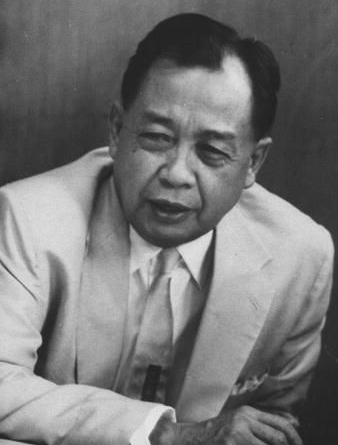Sen. Claro M. Recto on the Presidential System
The late Senator Claro M. Recto, president of the 1934 Constitutional Convention which drafted the 1935 charter, describes the Philippine political system this way:
“Our Constitution was frankly an imitation of the American charter. Many of the delegates were products of an American system of education and consequently were obsessed with the sincere belief that Democracy can be defined only in American terms. Necessarily, therefore, the Philippine presidency became a copy of the American presidency, with its vast concentration of powers and only periodical accountability to the people. Like the man in the White House, the man in Malacañang is now safe from immediate responsibility. And like the men on Capitol Hill, the men on Taft and Lepanto (the old Congress) do not have to render accounts for the fixed limits of their terms. A bad President and a bad Congress may not, in Lincoln’s phrase, fool all the people all of the time. But they can make fools of the people – they can make fools of themselves – for at least four years.
Only God and impeachment can remove the President from high office, no matter how incompetent or dangerous he may have proved himself to be in the eyes of the majority of the electorate. He may quarrel with his Congress. Congress may rebel against him and systematically obstruct his administration. But the issue must remain unresolved for the duration of their arbitrary terms. Neither the President nor the Congress may be changed although those two active powers of government may be stifling the Nation in a stubborn and unbreakable deadlock.
Under the Constitution the Presidency is potentially more powerful. I do not believe it an exaggeration to state that the President of the Philippines could easily convert himself into an actual dictator within the framework of the Charter. With his control of local governments and all that it signifies in terms of elections, with huge sums and unlimited sinecures to distribute, with emergency powers to rule by executive decrees as a last resort, he is restrained only by his own conscience from perpetuating himself or his party in power.
I do not recall any considerable discussion in the Constitutional Convention on this ancient and persistent problem of governmental responsibility. I believe we were too deeply under the spell of the American system to give much thought to any alternative. But now that we have presumably been freed by the declaration of our independence… the Filipino people may soberly consider (another) system… to harness the power of government to the will of the people.”
(Note: Recto was commenting on the 1935 System which was better than the 1987 System. What would C.M. Recto say if he were talking about the 1987 System which is a much more degenerated and defective system than the 1935 one?)
* * *
* * *
Here are some useful articles on the Parliamentary versus Presidential Systems:


No comments:
Post a Comment